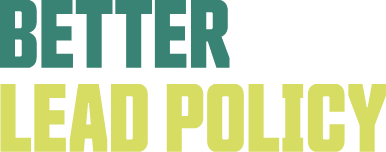For rental inspection programs that inspect for all housing hazards, best practice is to include all rental housing. Example: Rochester, New York: Their inspection program covers all housing, focuses on health, safety and blight, and is triggered by a complaint, neighborhood survey, a referral, or an application for Certificate of Occupancy. For rental inspection […]
Category: Deep Dive
What do they look for?
The two most common options are inspection programs for all housing hazards (often including (smoke detectors, mold, carbon monoxide detectors) or inspection programs that only look for lead hazards. To learn more about home health hazards generally, see The Green and Healthy Homes Initiative’s Home Health Hazards information. For those interested in inspecting for […]
How often are the inspections?
At the heart of a proactive rental inspection program lies a requirement to inspect homes on a regular basis, without the need for a complaint to trigger the inspection. Annual inspections are arguably the most protective of children living in the homes, but they also carry a higher cost for the landlord (who likely would […]
What do you do if you find a lead hazard?
Abatement = an activity designed to permanently eliminate lead-based paint hazards Remediation = interim control to minimize lead hazards Ideally, all lead hazards would be permanently abated whenever discovered. However, lead abatement, which often involves replacing windows, can be very costly. In communities with low housing stock, the cost of abatement may be higher […]
Who does the inspection?
Deciding who does the inspection is one of the most important questions in designing a Proactive Rental Inspection program. Some factors that may sway the decision: If a city is interested in inspecting for many housing hazards, a city-based program is a better choice. If a city already has a housing inspection program, […]
Legal Foundation for the Inspection Program
Proactive rental inspection programs rely on legal foundations included in the ordinance to give the city the power to adopt a program to address the lead poisoning issue. Common elements built into ordinances include: All housing built before 1978 is presumed to contain lead paint. Rochester, §90-53. Presumptions and obligations. A. For purposes of […]
Require Inspection as a Condition of Renting
The heart of a Proactive Rental Inspection program is to require an inspection as a condition of renting a unit. There are several different ways communities have structured this requirement Certificate of Compliance: Michigan cities Grand Rapids and Detroit both require a Certificate of Compliance. Detroit requires landlords to obtain a Certificate of Compliance […]
Read More… from Require Inspection as a Condition of Renting
Ensure Adequate Staffing and Technology to Support the Program
In order for a city to effectively implement a proactive rental inspection program, there must be adequate staffing to meet the need. If the inspection program is city-run, there need to be enough inspectors to complete inspections for all rental units during the inspection cycle. To determine whether a city has an adequate number of […]
Read More… from Ensure Adequate Staffing and Technology to Support the Program
Enforcement Mechanisms
Escalating administrative fines: This approach is designed to incentivize compliance by making it financially painful for landlords to not comply. Anecdotal evidence from multiple communities has shown time and again that if fines are low, landlords will often choose non-compliance if the cost of the fine is less than the cost of compliance. Allowing […]
Tenant Protections
Tenants are Protected from Retaliation: One best practice to protect tenants seeking to address lead in their homes is to prohibit the landlord from evicting the tenants or otherwise retaliating against them. Milwaukee law protects tenants seeking to address lead in dwelling. Maryland prohibits landlords from retaliating against a tenant who seeks to enforce Maryland’s […]
Periodic Reporting
Reports of Inspections: Requiring the city staff to regularly report to the mayor and/or city council on the work of the lead program is a best practice to increase transparency and hold the city staff accountable for a well-functioning lead program. Rochester, New York adopted Resolution 23 along with its lead ordinance. That resolution directed […]
Public Oversight Mechanisms
Advisory Committee: Public oversight of the proactive rental inspection program is often accomplished by an advisory committee made up of key stakeholders that have the ability to advise the city, make recommendations, and ultimately guide any necessary changes to the program. When Rochester adopted its lead ordinance in 2006, it also adopted Resolution 24, […]
Funding to Help Landlords Afford Repairs
Most communities want to help landlords access funding to address lead hazards. In addition to money from the city’s budget, public-private partnerships and bringing in money from the philanthropic community and other sources are both important to fund a robust lead program. Cleveland’s Lead Safe Home Fund: helps property owners pay for lead testing […]
Meaningful stakeholder input in design and oversight
Lead poisoning prevention programs can affect many stakeholders, either by putting burdens on them or providing benefits to them or in changing how or what they do in their jobs. Developing and implementing local lead poisoning prevention policy without meaningful stakeholder input can lead to unintended consequences, including: Landlords challenging a proactive rental inspection […]
Read More… from Meaningful stakeholder input in design and oversight
Do the Math
City inspections: # units / # of years between inspection = inspections per year. Inspections per year/ annual inspections per inspector = # of inspectors # of inspectors * salary + operation costs (lead tests,ipads, software, GIS mapping system) = program cost Program cost/ # units = cost per unit fees Calculate program costs based […]

